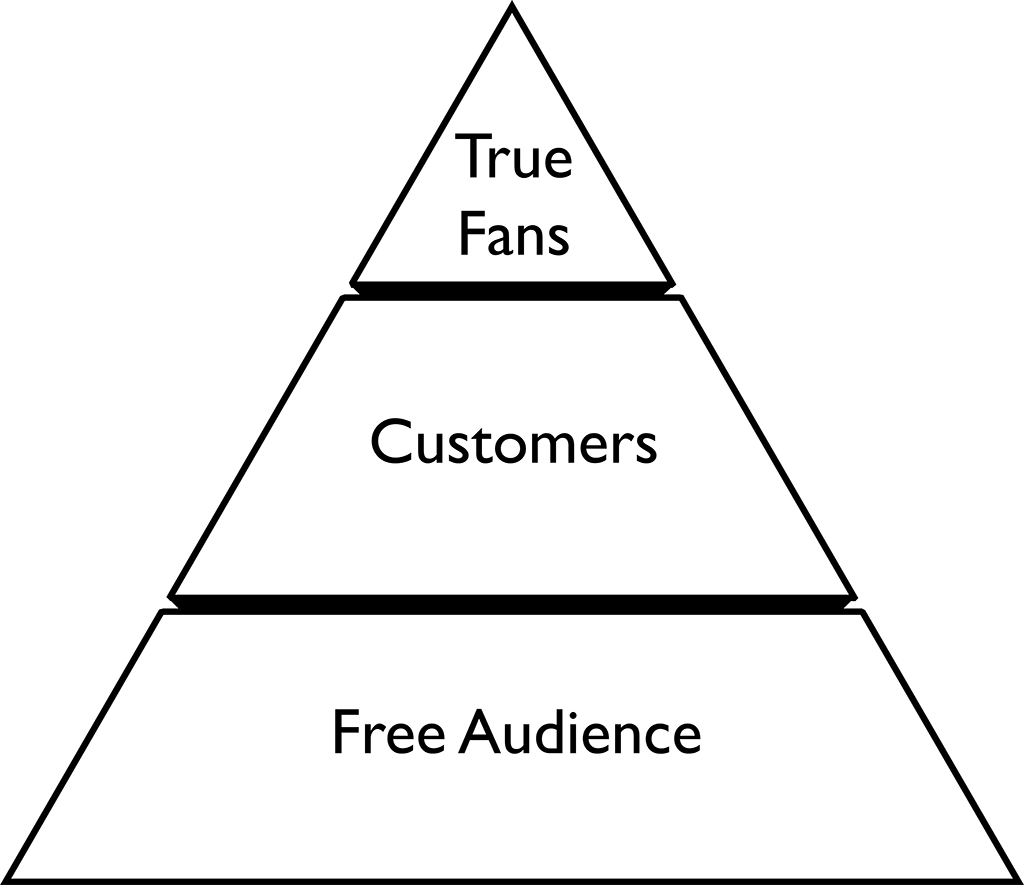While some are busy complaining about what intelligent computers mean for the automation of work, a growing number of people are taking advantage of these new tools to capitalize on their passion.
With computers have come new means of creation, so too with the internet and artificial intelligence. We’re spoilt for choice in recorders, editors, workstations, platforms, and managers.
Now, the barriers to building and selling are low enough that earning a decent income doing what you love from the comfort of your home isn’t a clickbait headline or get-rich-quick scheme anymore.
The passion economy shuns the time-for-money dynamic, and instead focuses on building a profitable passive income from your interests, creativity, and unique skill-set. Let’s explore how you can start living off what you love.
Find Your Niche
The first step into the passion economy will be figuring out what you can build or provide that sits at the intersection of your skills, interests, and other people’s needs or desires.
Your niche isn’t just about the topic you’ll focus on, but how you can put your personal spin on it. Try brainstorming different ideas and getting as many possibilities out on the table as you can, then start narrowing them down and evaluating them.
Here are some important factors you should consider when judging your ideas:
- Topic: what subject matter or idea will you be dealing with? Can you talk non-stop about it? Is it a combination of related topics that are unique to you?
- Format: what medium is your content going to come in? Be specific—don’t just say audio if you mean podcasts, or video if it’s a video course.
- Audience: who are you making this for? What are their demographics? What are their hobbies, lifestyles, problems, and budgets? Is it easy to find them?
- Voice: how will your brand speak? Formally or informally? This isn’t just language but visuals and branding should all complement each other.
- Platform: where does your audience tend to congregate? Which platforms does your content format work well on?
If you have trouble figuring out the best answers to these questions, look at people who create products or content similar to what you’re considering—what do they do? What works and what doesn’t? What inspires you and what can you do better or different?
Run an experimental phase where you try different content types over different networks and see how people respond. Track the important metrics, do keyword analyses, listen to the feedback, and try to find that happy medium between something people want and something you enjoy making.
When you’ve finished this exercise of determining your niche, you’ll have set the boundaries and constraints that you’ll operate within. Your niche provides focus and direction, the next key will be consistency.
Once you start getting your ideas out there, you’ll build an audience that trusts and enjoys what you do, an audience that knows what to expect and that turns to you as the best creator in your space.
Leverage the New Tools
It’s quite staggering the volume of tools now available to help creators. Whatever niche you end up devising, it won’t take long to find an abundance of tools to help you manage and run your enterprise.
The toolkit you end up relying on will depend on what your product, process, and budget are, but here are some of the popular options for tasks common to the passion economy:
- Newsletters: Substack, Revue, MailChimp
- Podcasting: Anchor, Castbox, Supercast, PodBean
- Courses: Teachable, Podia, Udemy, Thinkific, Kajabi, Avocado
- Video streaming: Youtube, Twitch, Instagram, OnlyFans, Zoom, Crowdcast
- Video editing: Animoto, iMovie, Wideo
- Photo Editing: Pixlr, Affinity, Fotor
- Music: Ableton Live, BandLab, Audacity, GarageBand, Soundcloud
- Raising money: Patreon, Kickstarter, Indiegogo, GoFundMe, Buy Me a Coffee
- Writing: Grammarly, Hemingway, Medium, Writer
- Books: Calibre, Scrivener, Reedsy, Amazon KDP
- Visual Design: Canva, Infogram, Adobe Spark, Figma
- Web design: WordPress, Carrd, Squarespace, Webflow
- Digital sales: Gumroad, Payhip, Shopify, WooCommerce
- Community Management: Discord, Mighty Networks, Memberful, MemberSpace
And that’s really just a taster. For less common tasks a quick Google search is likely to yield results—and if not, perhaps you’ve found a new business opportunity.
These tools won’t automate the entire process, you will still have to work. But, they should make it easier and faster to produce what you want while eliminating some of the more boring parts of the process.
Monetizing the Audience
In the initial stages of your journey into the passion economy you’ll be focusing on attracting an audience, but you’ll need to start converting that attention into a consistent income if it’s to become sustainable.
Depending on your niche, monetizing options can be more or less obvious. Sometimes it will be direct sales of the content or product you make, other times that content will be free but rely on other indirect methods.
Here are a few ways people in the passion economy generally rely on:
- Sales of books, courses, music, visuals, apps, etc
- Offering a service
- Subscriptions
- Access to live streams and shows
- Advertising and sponsorships
- Merchandising
- Affiliate links
Try to have your niche and monetization options complement each other: Advertising matches up nicely with videos, affiliate links with blogs, and newsletters as a subscription.
This is also a prime opportunity for repurposing and repackaging old content. If you’ve been publishing free videos to attract an audience, you can collect and elaborate on them to turn them into a course. If you have a collection of quality blog posts, turn them into an ebook.
Find Your 100 True Fans
WIRED editor Kevin Kelly once wrote that through the internet you’d only need 1000 fans paying you $100 a year for whatever you produce.
Passion economy guru Li Jin alters it slightly, claiming 100 true fans paying $1000 a year for whatever you produce is the better metric for the passion economy.
A true fan in this regard is someone who buys everything you do. When you publish something, they’re the first to see it. Think of people camping outside ticket booths for concert tickets, or Apple stores for iPhones. Your work speaks to true fans.
The 100 true fan metric looks less at amassing millions of followers, likes, and shares, and instead on forming stronger relationships with a core group of dedicated fans.
This doesn’t mean only focusing on true fans, you can still cast a wide net, but by placing some special attention on this segment of your fan base you’ll attract the 20% of customers that lead to 80% of your business.
A good method of distinguishing true fans from regular fans is to offer different pricing tiers for your product. Have free content that attracts new and unfamiliar customers, have a mid-level to turn free into paid customers, and a high-level tier for your super fans.
The key to the higher tier is to be intimate and personal. True fans need to feel a special connection, like they’re part of the process. Offer one-on-one calls, let them vote on your decisions, give them exclusive access to valuable content.
A Quick Case Study
It can help highlight what’s possible in the passion economy space by looking at what some creators have already accomplished, and exploring what they did to make it possible.
Jack Butcher left a job in advertising to build his Visualize Value brand. He began by doing what many others do these days: sharing quotes on social media. But he doesn’t do it like most others.
True to its name, Visualize Value is about creating a simple image that illustrates the meaning or content of an idea. Here’s an example:

You’ll find hundreds of them on his Twitter account. If all you do is follow him, you’ll get interesting and valuable content for free. However, while Jack publishes a lot of his work there, in true passion economy style he also understands how to earn from it.
He has released several courses on visual design and digital products, each for nearly $300, and has a large collection of merchandise. Visualise Value is now a $1 million business.
That’s quite the success story, but it is far from the only one and you don’t have to be anywhere near a $1 million business for the passion economy to support you.
When 100 true fans is the goal, and the online world is your oyster, success is easier to come by.
The New World of Work
Computers and the internet have dramatically changed the workplace. It’s made it possible for many people to become freelancers, gig workers, remote employees, and creators. And to be successful doing so.
One way that the passion economy diverges from those other areas is less emphasis on selling your time. While your work will still require time, you don’t have an hourly wage, you spend your time building a product that will sell in your sleep.
Another distinguishing characteristic is that you don’t want to mass market something. You’re not aiming to be Coke or McDonalds, you want to be the artisan producer that attracts a small but supportive customer base.
And of course you’re supposed to enjoy doing it. This is your passion. You get to emphasize your individuality and creativity, and to live the dream of making an income from it.
There are no signs this is going to slow down or become just a fad. New tools are constantly hitting the market, the barriers to entry are being lowered, new means of monetization are being thought up. Now’s a good time to delve in.




